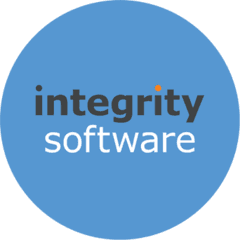Blog
Graduating from Excel: Is now the time for specialist accounting software?
Excel is often described as the ‘Swiss army knife’ of the office, with such a vast toolkit that it can be put to use in almost every accounting, HR, and project management scenario. But simply because Excel’s already available to you, it doesn’t mean it's the best tool for the job.
In many cases, another type of software will offer a more efficient solution. All too often, businesses don’t consider the hidden costs of sticking with Excel instead of investing in another tool.
If you’re at the point where you’re considering moving away from Excel, here’s what you need to know.
Hidden costs
Specialist software almost always has a price tag attached, and Excel doesn’t (assuming you’ve purchased licenses for Office, or make use of other Office 365 applications so that your subscription will continue to be worthwhile). But there are hidden costs associated with Excel use that you may not have considered.
- Initial time investment. Each time you set up a new process, you need to build a spreadsheet that facilitates it. Unless its function is extremely straightforward, this could take days.
- Data input and maintenance. Adding data to spreadsheets takes time, particularly if you need to duplicate data between systems. This also introduces a window for errors to creep in.
- Paper trail issues. Although Excel has a Track Changes function, it’s easy to compromise and it doesn’t keep track of every single change to a document. If there’s a problem with your data and you need to find out the source of it, Excel can’t help with that.
- Training. We all assume that everyone knows how to use spreadsheets, but most staff at your business may have little more than a basic understanding of how Excel works. You’ll still need to dedicate resources to train staff to use your spreadsheets correctly if you want the data within them to be accurate.
Searching for alternatives
The business software market is in rude health, with plenty of options available for businesses of every size, in every sector, for every use case. Software options range from general (designed to appeal to as many businesses as possible) to specialist (designed for a specific sector or sub-sector).
If Excel isn’t serving your needs, you’ll probably want to focus your search on construction specific software that’s more likely to be able to fit your use case. Create a list of key features you need, and any other preferences (relating to customer service, pricing, support etc.), before speaking to others in your industry and carrying out an online search for candidates to go on your software shortlist.
Specialist software or Excel?
Once you have one or two specialist software candidates, compare them with the status quo (Excel). While the short term costs of switching may exceed those associated with sticking with Excel, your analysis may well show that specialist software will quickly become worth the extra investment.
And remember: Excel might have served you well in the early days, but as your business grows and changes, your spreadsheets might start to hold you back.
If you’re in the construction industry…
Many of our clients first came to us after becoming frustrated with Excel or software designed without the construction industry in mind.
Evolution Mx is integrated accounting and job costing software that’s designed specifically for construction businesses in the UK and Ireland looking to move away from Excel or basic accounting software for the first time. To find out more, get in touch to discuss your requirements and book a free demonstration here today.
© Integrity Software Systems Ltd 2024. Part of the JDM Technology Group
Privacy PolicyCookie PolicyWebsite Terms & ConditionsIntegrity Terms and Conditions
